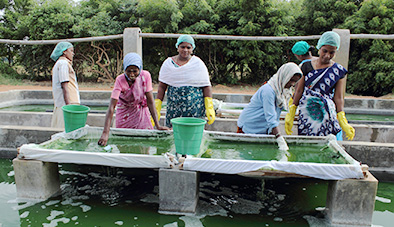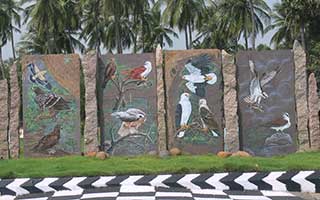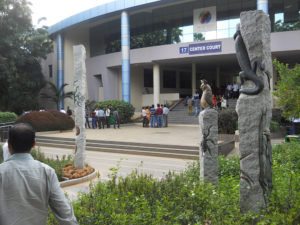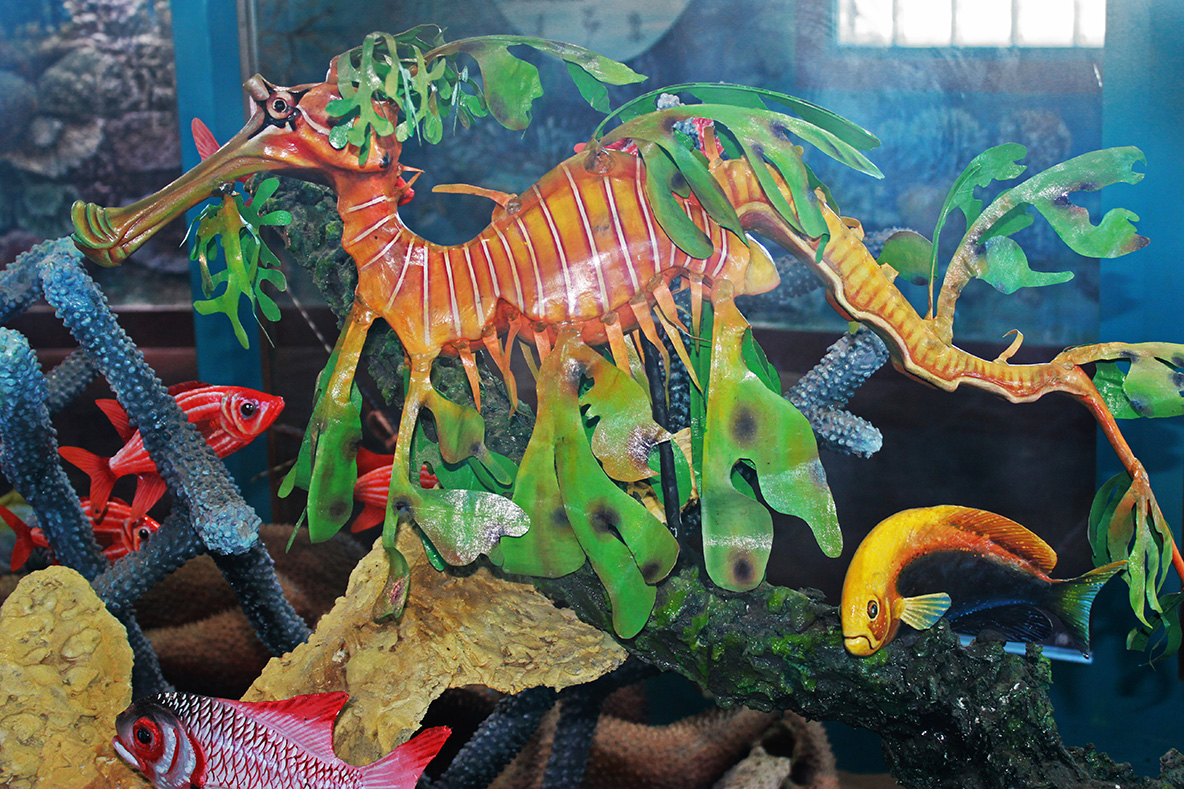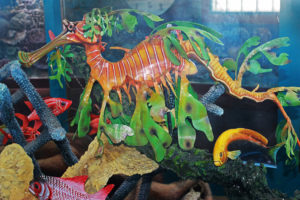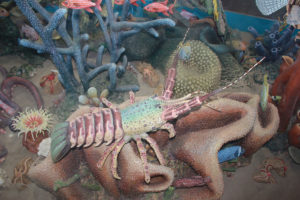Bubesh Guptha: Senior Wildlife Biologist
Dr Bubesh Guptha specializes in researching biodiversity, birds, mammals, butterflies and reptiles.
As Senior Wildlife Biologist at Pitchandikulam, he has undertaken surveys and studies of the nearby Kazhuveli tank, a significant sanctuary for migrant birds and bio diversity, and has even been credited with discovering a new form of snake in the Seshachalam forest range.
He recently received the BioDiversity Award from the Government of Andra Pradhesh in recognition of his work in identifying a new species of snake in India.
He has several peer-reviewed journal publications to his credit, and the following books are widely available from specialist wildlife publishers:
- A Glance Of Biodiversity From Seshachalam Hills, Andhra Pradesh
- Wetlands And Wetland Birds: Status of Wetland Birds of Selected Districts in Tamil Nadu
- Birds of Pulicat & Nelapattu Bird sanctuaries
Before joining Pitchandikulam, he worked at:
- the Salim Ali Centre for Ornithology and Natural History (SACON), Coimbatore
- Centre Soil and Water Conservation Research Training Institute and Research Centre, Udhagamandalam (Ooty), Nilgiris
- Biodiversity Research Centre & Monitoring Research Laboratory, Project Tiger Srisailam, Andhra Pradesh
- Wildlife Institute of India, Dehradun
- Wildlife Management Circle, Tirupati, Andhra Pradesh Forest Department
He has a BSc in Botany, Zoology and Chemistry and an MSc in Wildlife Biology from Bharathidarsan University, Tamil Nadu, and a PhD in Ornithology from Sri Venkadeswara University, Andhra Pradesh.
Environmental Education in the Auroville Bio-Region


Nadukuppam High School
The Pitchandikulam Forest team is involved in environmental education across more than 100 schools in the Bio-Region. The main effort is to make the local communities aware of their region and its importance, especially the Kazhuveli water tank. Our main centre is in Nadukuppam village, where the local high school has been transformed from a low-performing school into a high-achieving model school with excellent academic standards, showing what can be achieved at this level. Children are involved actively in seeds and raising plants in the school nursery, organic agriculture, composting, conducting plays and projects on environmental issues.
Other schools across the region
We also conduct programmes in other government and private schools on themes like planting, herbal medicine, water conservation, recycling, waste, air pollution, organic vegetables, and celebrating special days like World Environment Day and Water Day.
Children on these programmes regularly visit the regenerated forests in Nadukuppam and Pitchandikulam to learn about the forest and biodiversity of both fauna and flora. This education programme is supported by four teachers, who have also formed eco-clubs in the schools for these activities.
These educational classes and tours are also open to other students and participants. There are regular visits to our forests and education centres by women from self help groups across Tamil Nadu and from government officers to learn about the bio-region, forest and animals.
Forest Eco Retreat in Nadukuppam
 Our planted forest in Nadukuppam, as well as being at the heart of our social and environmental activities in South India, has over the years taken on a secondary, unofficial function – as a place of deep rest and relaxation for us at Pitchandikulam Forest and our friends.
Our planted forest in Nadukuppam, as well as being at the heart of our social and environmental activities in South India, has over the years taken on a secondary, unofficial function – as a place of deep rest and relaxation for us at Pitchandikulam Forest and our friends.
In the forest, we can build small and simple huts for people to retreat and search their souls for adding value to life. The rich environs of a growing forest, water bodies, birds and butterflies to give company, will be the best backdrop to the retreat.
Embodying ethical tourism, this kind of retreat can enable one to explore the region with a gentle footprint.There is great potential to explore the complexities and richness of rural Tamil Nadu – to engage with the village community, to learn about the Kazhuveli water bodies, a rich wetland ecosystem that is currently greatly vulnerable to human interference.
If one likes some activities and wants to contribute there are nurseries, compost and organic farms to work in. A Bali House with a small library and music is a common place to meet with other friends.
Training Centre for Rural Women

Our work in Nadakuppam to date
Pitchandikulam has been working in the Nadukuppam area since 2003. Since then, it has grown into a major part of our work: covering everything from teachers in local schools, indigenous forest planting, traditional water management, organic farming, rural enterprise for women and a wide range of training. To date, we have helped to set up five rural women’s enterprises in the area, and would like to be able to help even more women setting out in the world of cooperative enterprise.
Our Dream
To consolidate over a decade’s worth of work, our dream is to set up a dedicated centre for women’s training, which will act as a traditional knowledge hub for the Kazhuveli bio-region and its natural and cultural integrity, and allow women to explore new ways in which they can blend different knowledge systems. We can share our experience with other women’s development programmes across India, invite participants and volunteers from our network in India and abroad, and create a centre of excellence in rural enterprise training for women.
We want to build an ecologically friendly place for the trainees to stay, so that all participants can live in a rural environment while learning and sharing their stories. We envisage a sustainable livelihoods learning centre – backed by our experience with the Sustainable Livelihood Institute – with practical demonstrations, activities, intensive education programmes and a regular programme of trainings each month.
How You Can Help
Please contact us to find out more, or contribute to our account below.
SLI – Sustainable Livelihood Institute

Pitchandikulam Forest is a founding partner organization and incubating support for the Sustainable Livelihood Institute (SLI) which opened in 2015.
SEDAB – Sustainable Enterprise Development
 The Sustainable Enterprise Development in the Auroville Bioregion project (SEDAB) provides sustainable livelihood to the communities in the two areas of Vanur and Marakkanam, Villupuram district, that fall within the Kazhuveli bio-region of Tamil Nadu, India. This is a three year project that built on the strengths of research, development and innovation within the Auroville community.
The Sustainable Enterprise Development in the Auroville Bioregion project (SEDAB) provides sustainable livelihood to the communities in the two areas of Vanur and Marakkanam, Villupuram district, that fall within the Kazhuveli bio-region of Tamil Nadu, India. This is a three year project that built on the strengths of research, development and innovation within the Auroville community.
To find out more, please see the SEDAB website.
Rural Women’s Theatre Workshop
GEN Auroville and Pitchandikulam hosted a two day workshop on the 1st-2nd July 2016 for a group of fifteen mostly married women from neighbouring villages around Nadukuppam, Tamil Nadu.

One half of the group worked at Amirtha and the other at Meera, both social enterprises that have emerged from Pitchandikulam Forest’s work at Nadukuppam, a village in Auroville’s bioregion.
]The intention was to explore through Theatre of the Oppressed games and activities what it means to live as a woman in the rural Indian context, trying to unravel the narratives, the thought patterns and societal constructions of gender culminating in a forum play for the larger community.
It was faciliated by Ms. Afshan Mariam, a psychologist working in education using tools of drama, farming and mindfulness.
To see more about the workshop and its outcomes, please see here. Soul of Women workshop.pdf
Toll plazas along the ECR from Chennai to Puducherry

Eye catching paintings of local wildlife on Kadappa stone were erected at both tollgates between Chennai and Puducherry, along the East Coast Road (ECR).
Maintenance update: A few of the paintings have faded noticeably since they have no shade and have not been touched up since they were commissioned nine years ago.
Customers and fans of outdoor art please note: if artworks are left out in direct sunlight, the colours will fade, so repainting maintenance should ideally be undertaken every three years or so. Therefore, it is most economical not to place the art in direct sunlight without any kind of shade.


Butterfly Garden at WIPRO, Electronic City, Bangalore
It was a pleasure to collaborate with ATREE on this project: the Art Department enhanced the landscape features of the butterfly garden with confluent paintings on large granite slabs and stone sculptures, and our Butterly Expert provided background information about the life cycle of Indian butterflies.
Marine Interpretation Centre, Kundakal (near Rameswaram)
This was a joint UNDP and Gulf of Mannar Biosphere Reserve Trust (GoMBRT) undertaking. The concept was essentially that when one entered the building the atmosphere should be almost as if one was underwater. The highlight of the whole exercise was a three dimensional 18 ft x 9 ft model of a coral reef with hundreds of associated life forms.
